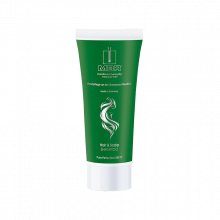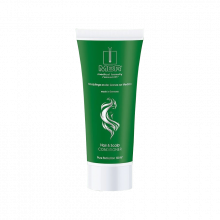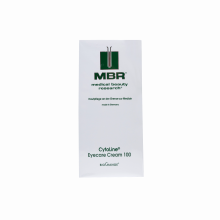Mitochondrial Aging
The mitochondria do the majority of energy that is produced in the cells. Cell function is subject to the mitochondria providing energy to the rest of the system. Mitochondria are also the main factor behind free radical damage. The mitochondrial fuel cycle produces free radicals as a common by-product. As free radical damage and lower levels of energy production are signs of aging, it can be assumed that mitochondria play a vital role in the aging process.
As mitochondria are central to cellular function, each cell has multiple copies of the mitochondria. Additionally, mitochondria can divide themselves to repair some types of free radical damage. However, mitochondria have design flaws and certain vulnerabilities, making them one of the weakest factors in the defense systems of the anti-aging process.
Products improving mitochondrial activity
DNA damage plays a large role in the process of aging because some of it cannot be fixed. Some DNA lesions can be repaired while others cannot. There are two parts of the cell that contain DNA: the nucleus and the mitochondria. The nucleus has the bulk of the genetic material in its chromosomes. The mitochondria also have a small but significant portion of the cellular DNA. Free radical damage in DNA is much more common in the mitochondria than in the nucleus. The DNA resident in the mitochondria is liable to up to 10 times the amount of damage than the nuclear DNA. This is because the majority of free radicals are formed in the mitochondria. The increased vulnerability of mitochondrial DNA is increased because proteins do not protect it as well.
Over time, the ability of the mitochondria to produce energy decreases. The first cellular system to slow down with age is the mitochondria. This is known as mitochondrial burnout. Cells show less metabolic activity, which in turn leads to the lowered functionality of organs and a faster onset of degenerative diseases.
Stress has been shown to be a key accelerating force in mitochondrial burnout. The byproducts of stress are higher demands for energy which make the mitochondria work harder. This can lead to a higher level of oxidative by-products meaning more free radicals. In a long-term or intensive stress situation, the mitochondrial membranes get to the point where they leak. This leakage is caused by the free radical attack and can interrupt the cell's energy and chemical balances. Severe oxidative damage can speed up the aging process and promote disease.
The primary role of the mitochondria as a power source and their vulnerability to free radical damage makes them an important target for anti-stress and anti-aging intercession. Some of the most promising research on the prolonging of the lifespan has been done on the idea of inhibiting mitochondrial burnout. Acetyl-L-carnitine (ALC), coenzyme Q10 (CoQ10), and R-alpha lipoic acid (R-ALA) - all-important nutrients have been proven to be active in mitochondria and can improve mitochondrial function.
Products with mitochondrial booster
Mitochondria contain ALC, which is a key part of the mechanism for transporting fatty acids. The body can produce ALC, but its rate of production drops with age. Taking ALC supplements increases the use of fats by the mitochondria, thereby producing more energy. ALC has been shown to be useful in treating some diseases that affect the cardiovascular and nervous systems.
CoQ10 is an essential part of the mitochondrial fuel process as well as an antioxidant. CoQ10 can raise the rate and efficiency of energy production and protect the mitochondria from free radicals. While the body can produce its own stock of CoQ10, there are many reasons that it will not produce enough CoQ10. Examples of these inhibitors are illness, age, malnutrition, and side effect of cholesterol-lowering drugs. CoQ10 is often referred to as a biomarker for aging as the body's level of CoQ10 is directly related to degenerative diseases and aging. Taking CoQ10 supplements has been shown to produce a modest increase in the life span of animals. A significant number of CoQ10 studies on humans have shown that it can be an effective healer for several different kinds of heart disease. CoQ10 can also help hypertension, muscular atrophy, and lower levels of immunity.
R-alpha lipoic acid is also an important part of the mitochondrial energy system as well as being an antioxidant. Studies have shown that R-ALA supplements can reduce the number of free radicals in the mitochondria and increase energy production.
Although ALC, CoQ10, and R-ALA have shown some promise for protecting and revitalizing mitochondria, further research is needed to understand if these or any other substances can really slow down mitochondrial burnout in the long run.




